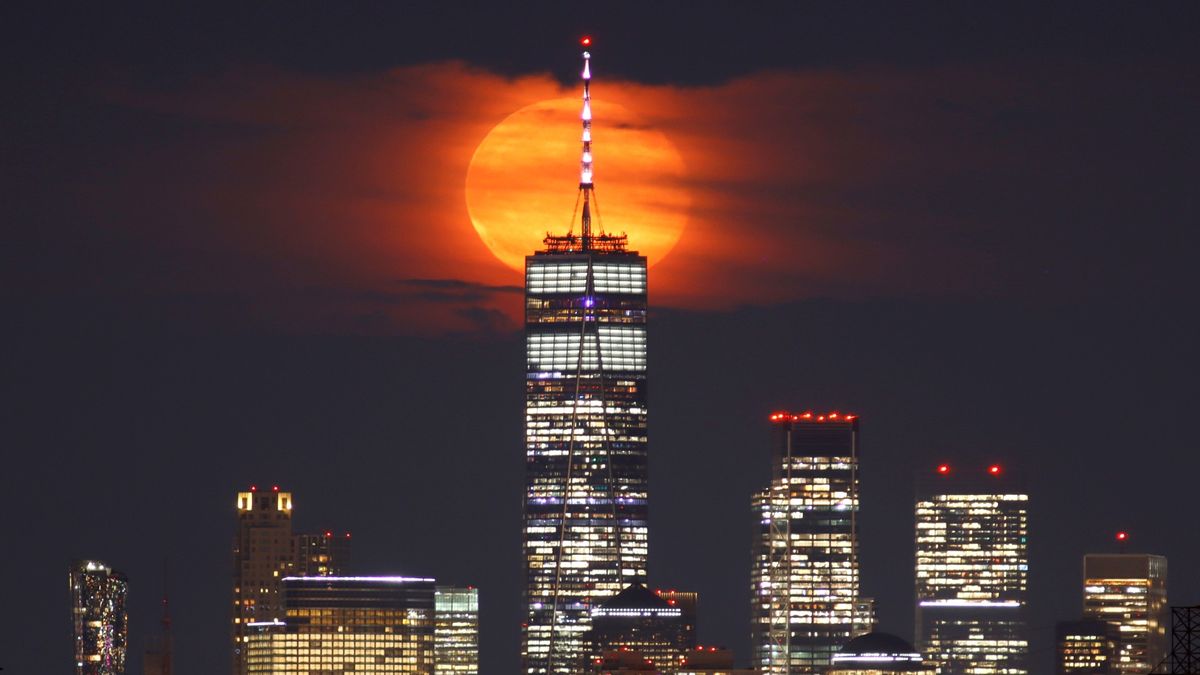July's Full Buck Moon is the 1st of 4 supermoons this summer
By Robert Lea published 1 day ago
The full moon on Monday, July 3, will mark a series of four supermoons in a row.

July's full moon, also known as the Buck Moon, rises on Monday (July 3) as a supermoon.
An exciting event for skywatchers, supermoons see the lunar disk appearing larger and brighter in the night sky, but the Buck Moon of 2023 will be even more thrilling as it kicks off a season of four supermoons in a row. Supermoons can lead to a 30% brightening of the moon and a 14% increase in the lunar disk as seen from Earth, but these differences usually aren't noticeable with the unaided eye unless one pays a lot of attention to the moon nightly.
Supermoons are the result of the moon being closer to Earth at the time of a full moon. Eclipse expert and retired NASA astrophysicist Fred Espanak told Space.com that during the July Buck Moon, the moon will be just 224,895 miles (361,934 kilometers) from Earth in comparison to its average distance of around 238,000 miles (382,900 km).
Supermoons occur because the orbit of the moon around Earth is not a perfect circle; as a result of Earth's gravitational influence, the moon's orbit is elliptical, appearing like an elongated circle or oval. This means there are times in the moon's 27-day orbit that it is closer to Earth and other times that it is further away. A supermoon happens when the moon is both in the full moon phase of its 29.5 day lunar cycle and is at perigee, the closest point to Earth in its orbit.
According to In the Sky from New York, July's Full Buck Moon will rise at 7:10 p.m. EDT (2310 GMT) on Monday (July 3) and will set at 4:33 a.m. EDT (0833 GMT) on Tuesday (July 4).
More:
https://www.space.com/july-full-buck-moon-supermoons-summer?utm_source=notification
